Abstract
The purpose of this study is to identify and describe, epidemiologically, work-related homicides in California from 1979 through 1981. Using the California State Computer Mortality File, an algorithm was developed and a search of the death certificates was made using three factors: "injury at work," injury at a work location, and pertinent external-cause-of-death codes. Only 30 per cent of the 466 homicide deaths identified were also found in the logs of the state Occupational Safety and Health agency. The average annual rate of work-related homicides was 1.5 per 100,000 workers. The male-to-female-rate ratio was 4.2:1. Police and security guards and persons in occupations having frequent public contact involving exchange of money, particularly in late afternoon or evening hours, were at highest risk. Controlling exposures of high-risk individuals and developing strict standards for reducing such exposures might greatly reduce assaults and thus prevent senseless loss of life in the workplace.
Full text
PDF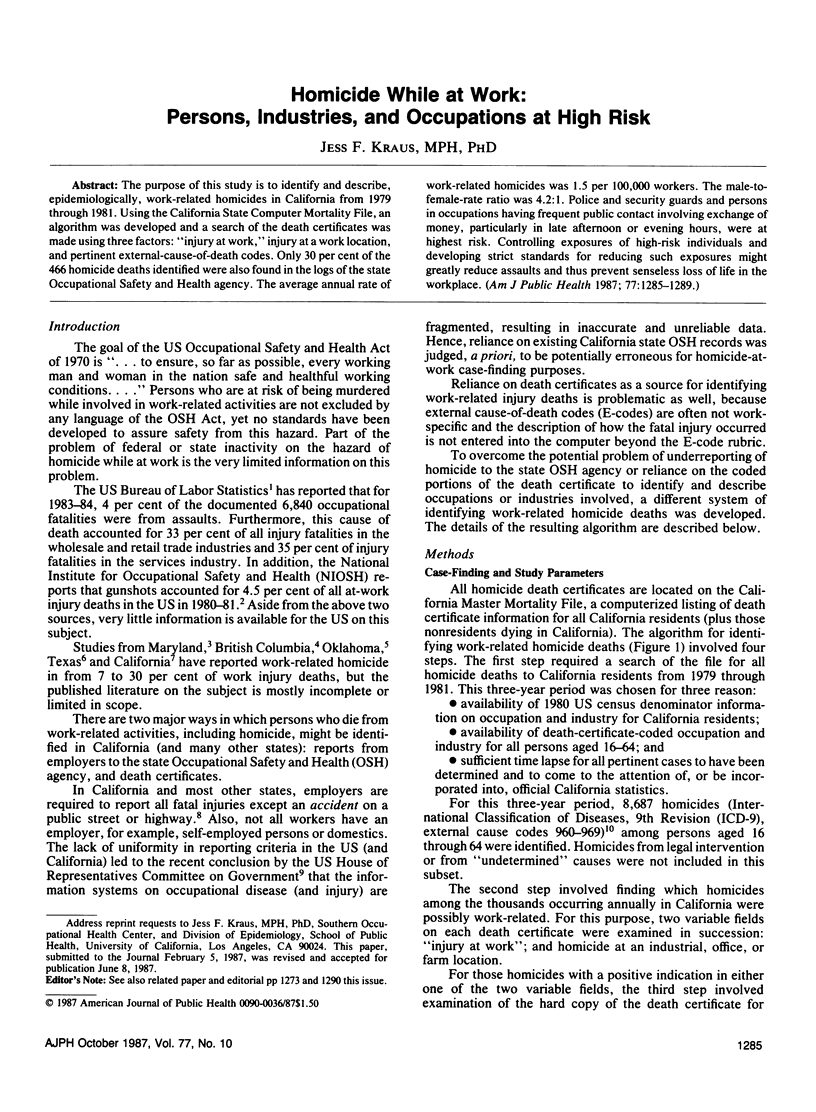
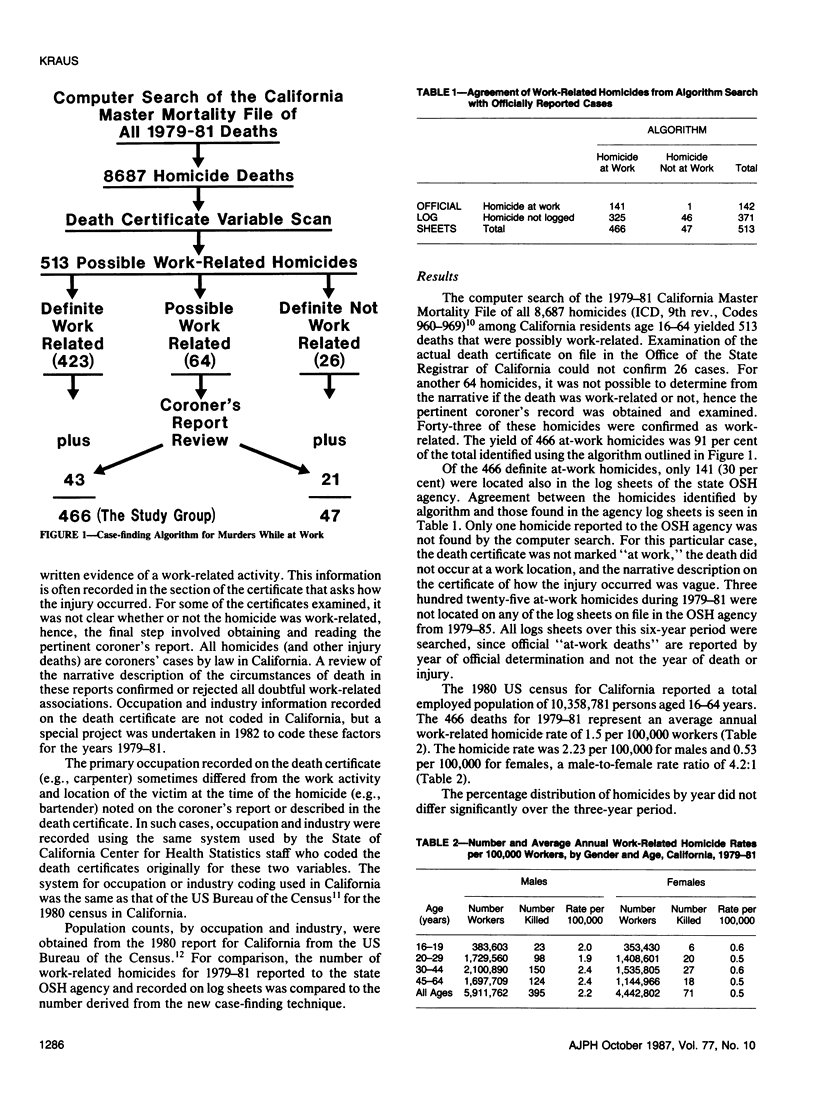
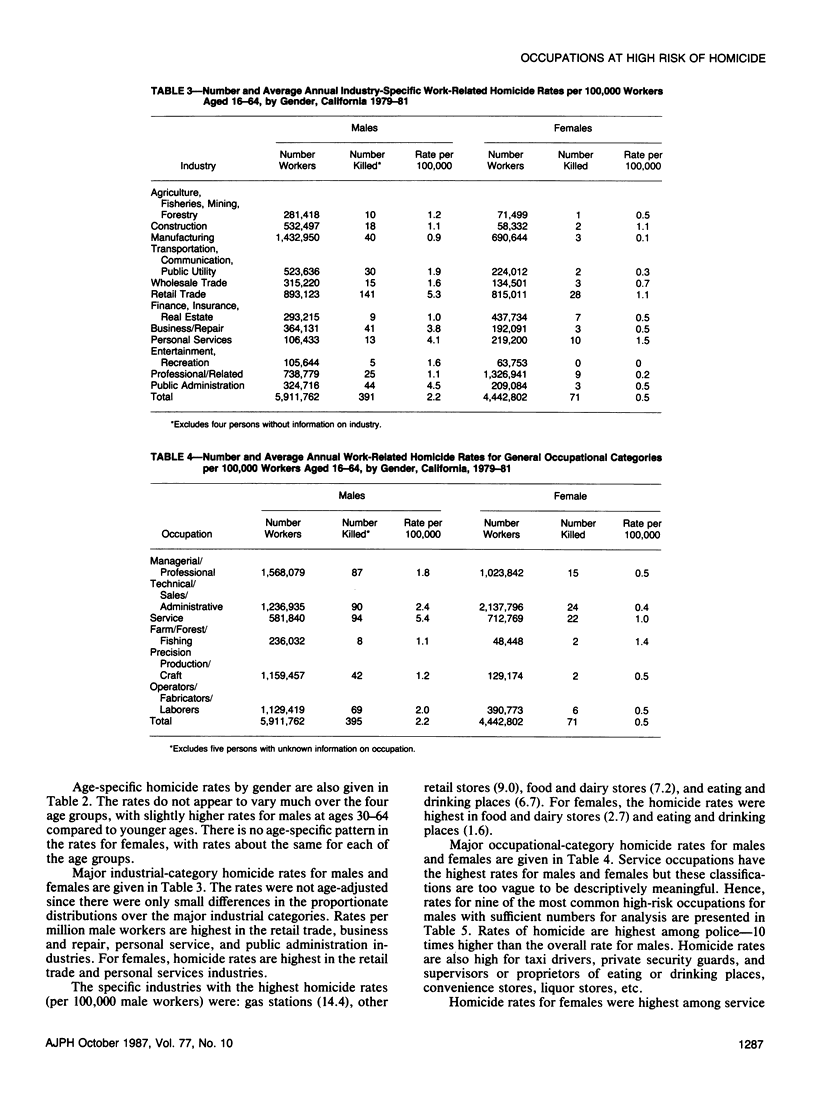
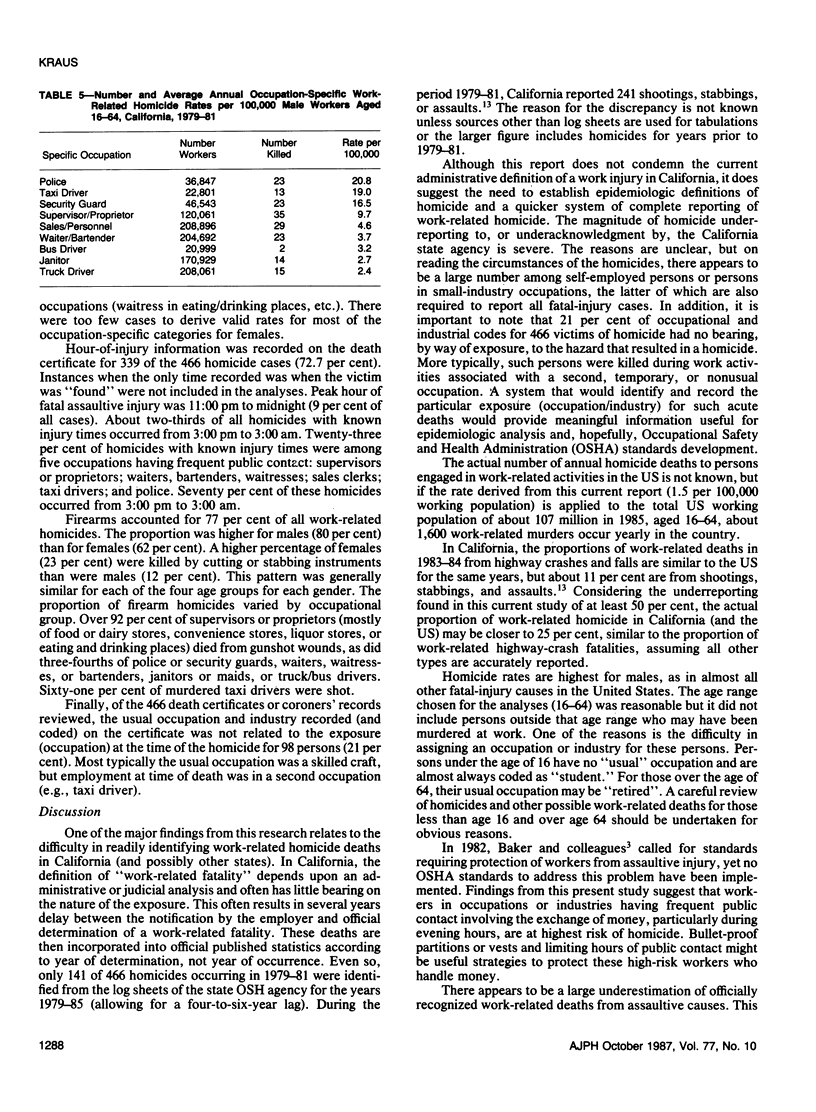
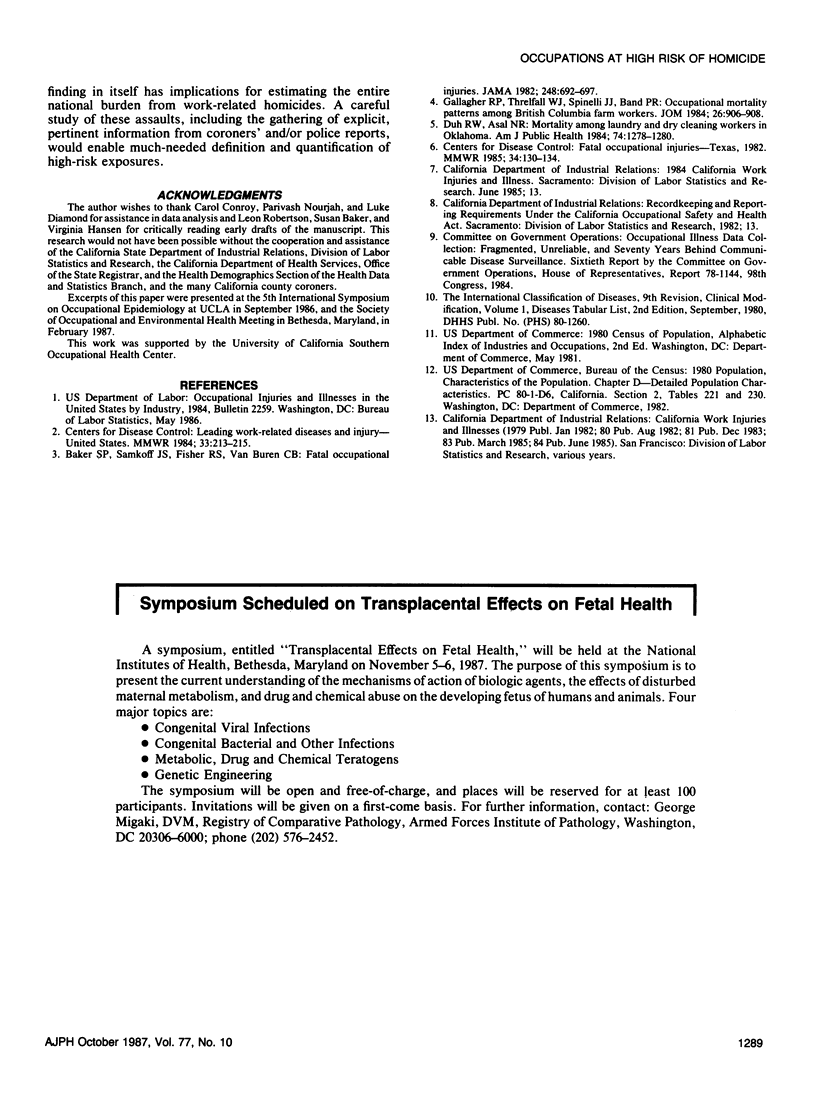
Selected References
These references are in PubMed. This may not be the complete list of references from this article.
- Baker S. P., Samkoff J. S., Fisher R. S., Van Buren C. B. Fatal occupational injuries. JAMA. 1982 Aug 13;248(6):692–697. [PubMed] [Google Scholar]
- Duh R. W., Asal N. R. Mortality among laundry and dry cleaning workers in Oklahoma. Am J Public Health. 1984 Nov;74(11):1278–1280. doi: 10.2105/ajph.74.11.1278. [DOI] [PMC free article] [PubMed] [Google Scholar]
- Gallagher R. P., Threlfall W. J., Spinelli J. J., Band P. R. Occupational mortality patterns among British Columbia farm workers. J Occup Med. 1984 Dec;26(12):906–908. doi: 10.1097/00043764-198412000-00009. [DOI] [PubMed] [Google Scholar]
- Hoaken P. C. Good English is good medicine. Can Med Assoc J. 1982 Feb 1;126(3):230–230. [PMC free article] [PubMed] [Google Scholar]


